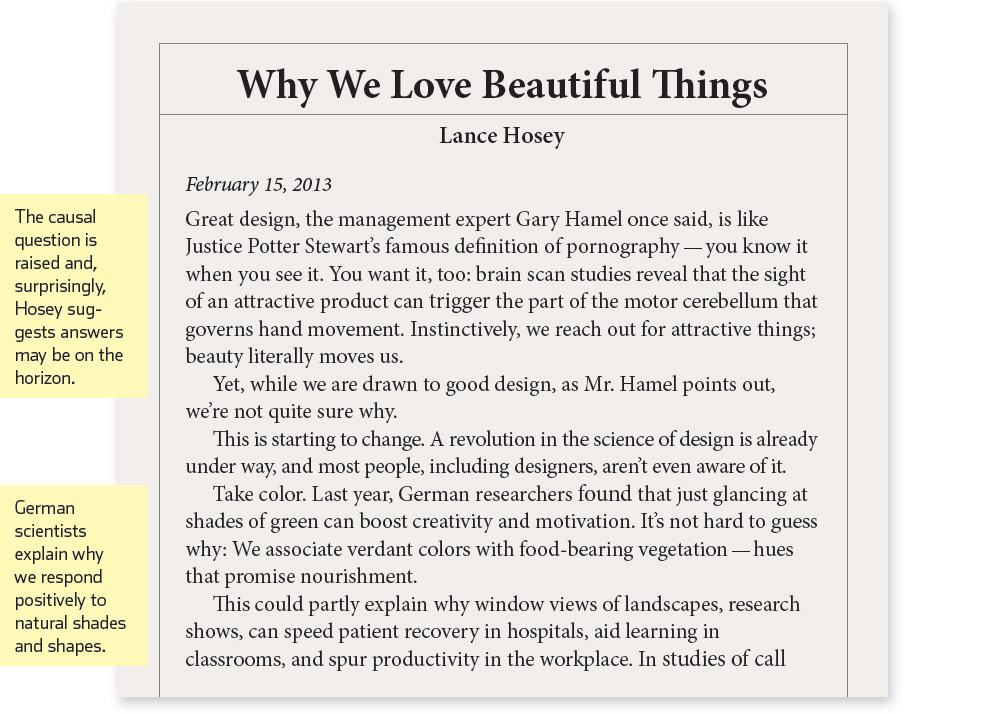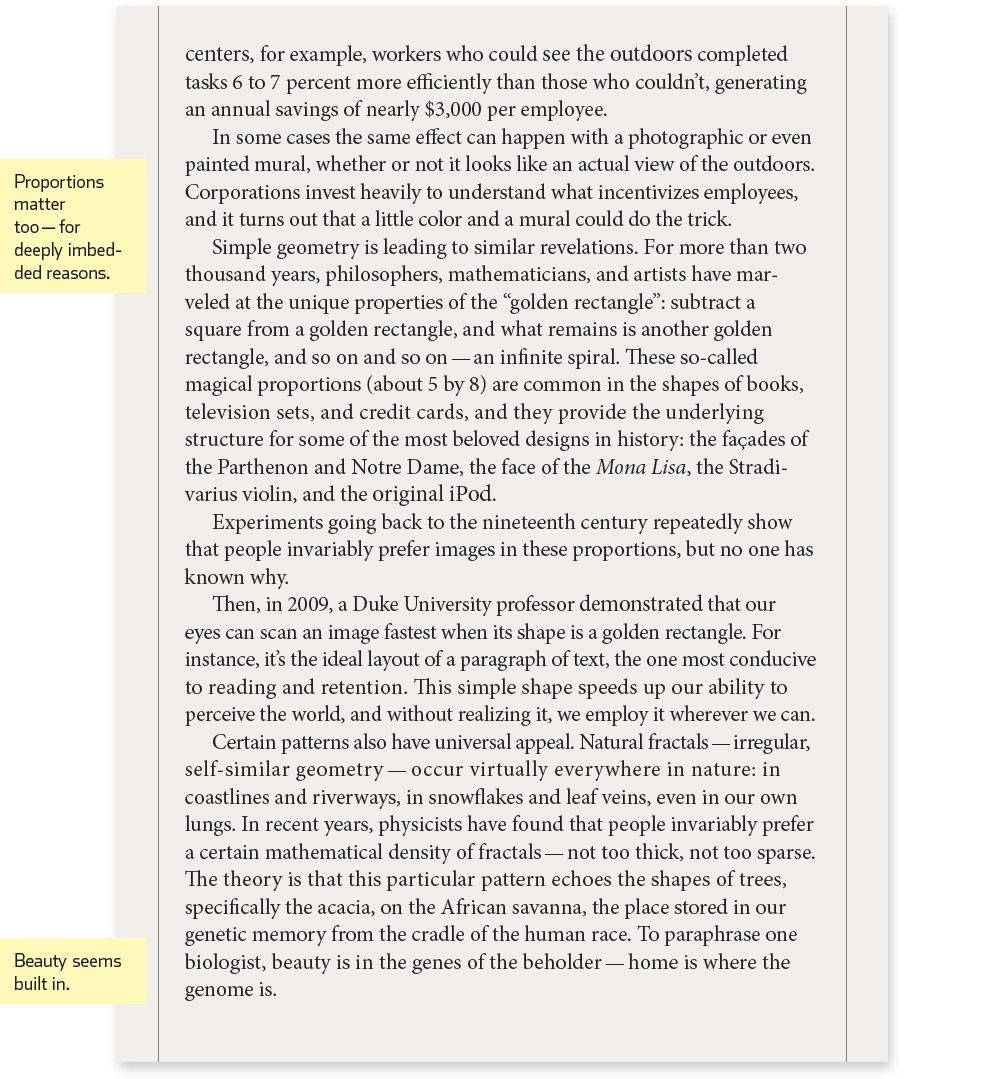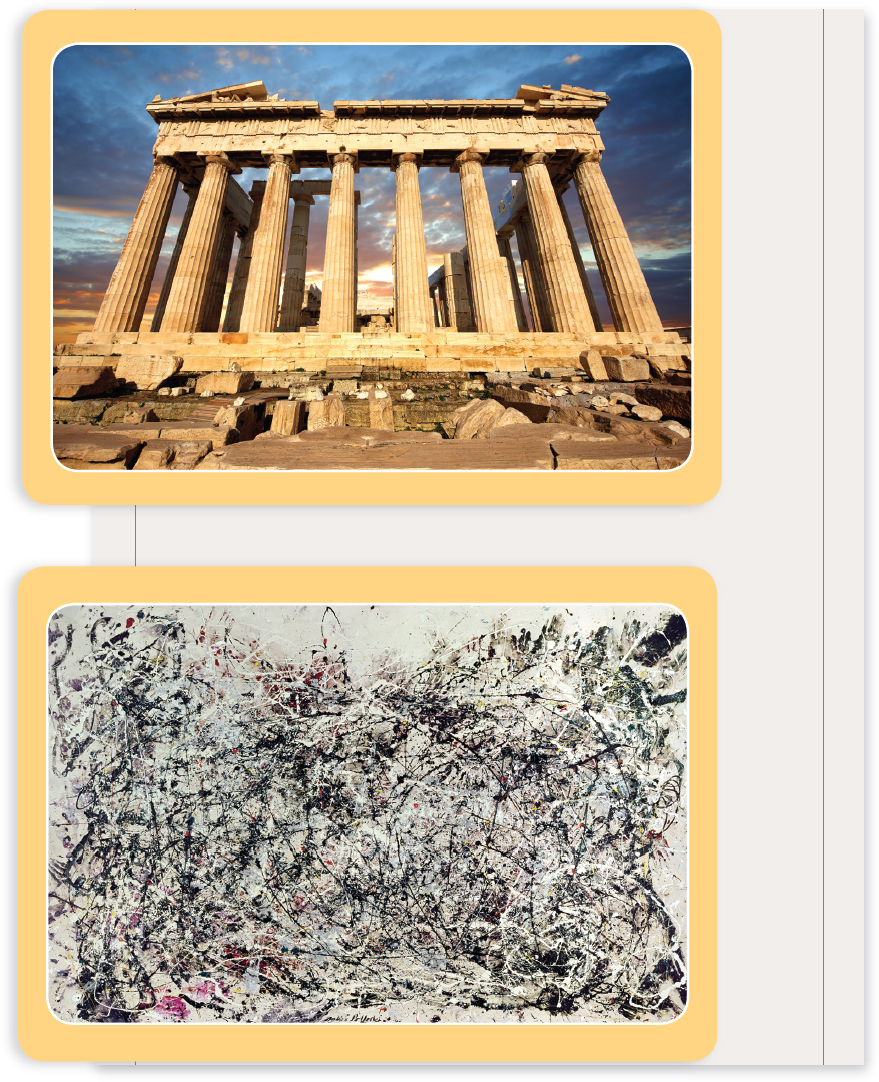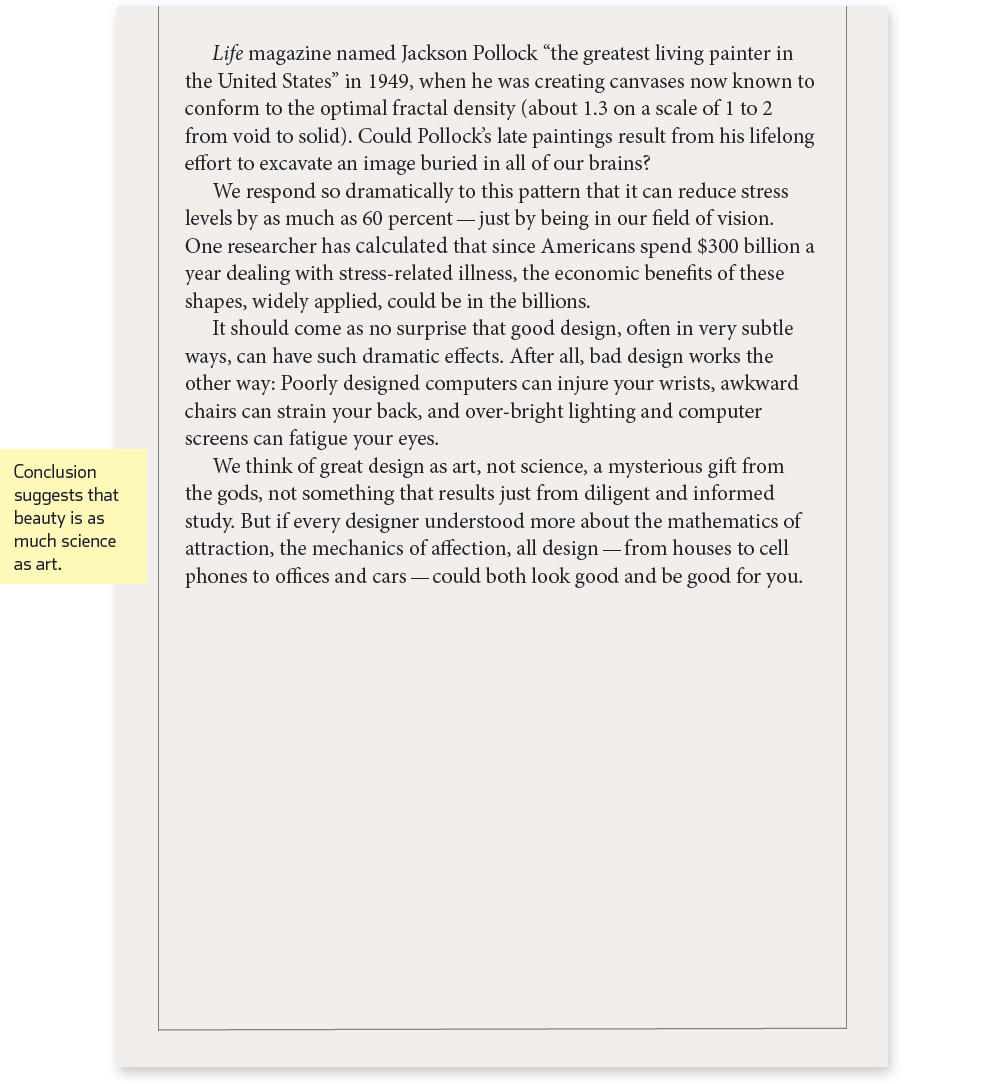Cultural Analysis
CULTURAL ANALYSIS
Ambitiously accounting for why people act as they do is one of the pleasures of writing causal arguments — providing that the answers offered are not too pat or predictable. (See Paula Marantz Cohen’s comments on resisting “hard explanations for soft things”.) Lance Hosey aims big in this short and entertaining cultural analysis that originally appeared in the New York Times.
Reading the Genre
Much of this analysis functions like a report: Hosey reviews what scientists have learned about human reactions to aesthetic stimuli. But what do you take from his conclusion — that great design could really be a matter of “diligent and informed study”? Does science trump art, now that technicians know the formulas for aesthetic pleasure? Or are scientists mere stragglers here, trailing after artists and architects who centuries ago learned how to make beautiful objects?




Pollock. No. 1A, 1948 (oil on canvas), Jackson Pollock (1912–
© 2014 The Pollock-